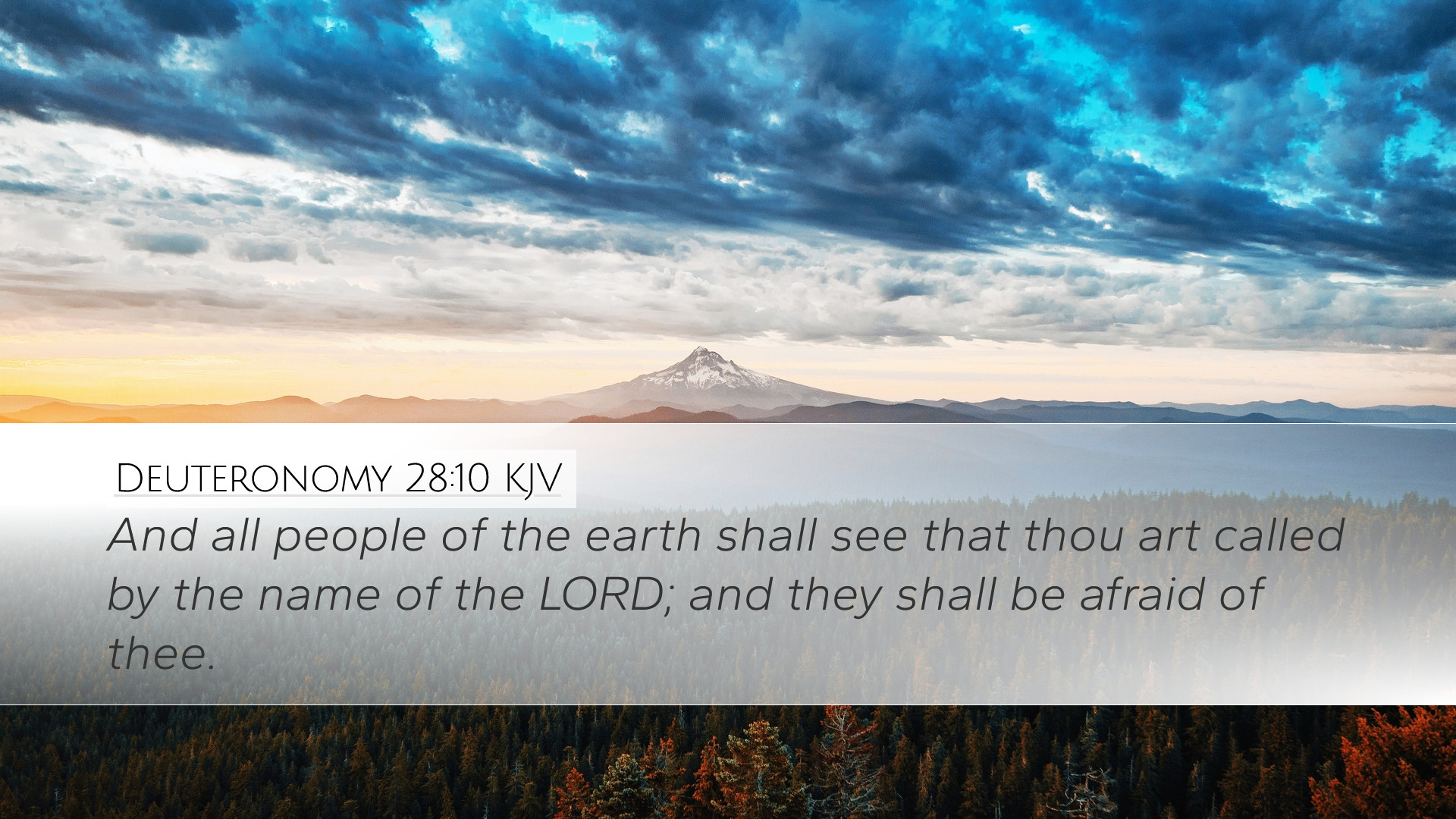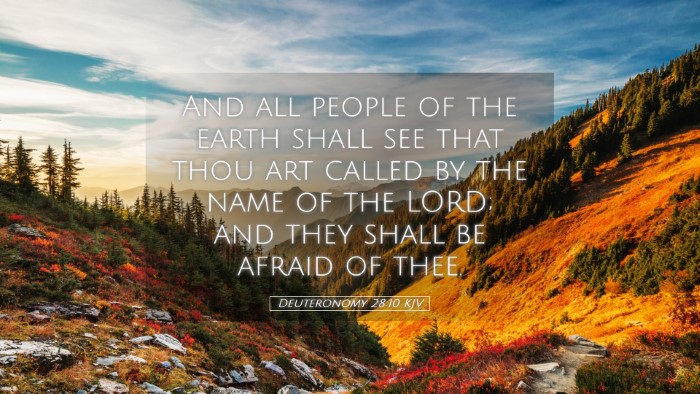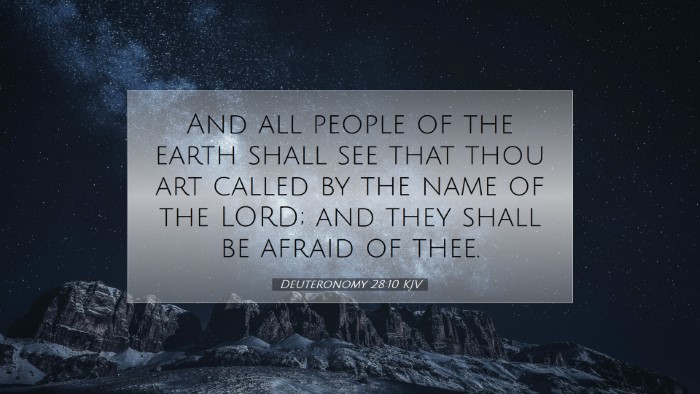Commentary on Deuteronomy 28:10
Verse Text: "And all peoples of the earth shall see that you are called by the name of the Lord, and they shall be afraid of you."
Introduction
The verse from Deuteronomy 28:10 encapsulates a profound promise about the visibility and reputation of God’s people among the nations. It serves not only as a reminder of the covenant relationship between God and Israel but also highlights a principle applicable to the church today. This commentary seeks to draw insights from notable public domain sources to illuminate the spiritual and theological implications of this verse.
Contextual Overview
Deuteronomy 28 falls within a larger context known as the "Blessings and Cursings" chapter, where Moses outlines the repercussions of obedience and disobedience to God's commandments. The blessings articulated in this chapter are contingent upon Israel's fidelity to God's Law. The declaration in verse 10 about being called by the name of the Lord is set against the backdrop of a covenant community that reflects God’s character to the world.
- Moses' Exhortation: The address here by Moses emphasizes the tangible manifestations of God's favor towards Israel.
- Implications for the Nations: The fear of nations implies a recognition of God’s sovereignty and Israel's special status among the peoples of the earth.
Theological Insights
The promise that the peoples of the earth would acknowledge Israel as God's chosen people is deeply theological. As noted by Matthew Henry, this acknowledgment is not merely for Israel's glory but serves as a testimony to God's greatness and faithfulness. When believers live in a manner that reflects God's commandments, they bear witness to His transformative power.
Matthew Henry's Commentary
Henry emphasizes that the honor bestowed upon Israel is predicated on their divine association. The name of the Lord is not an arbitrary title but a representation of divine authority and character. The idea that nations would "see" suggests visibility; the actions and blessings upon Israel should serve as a light to the Gentiles, calling them to marvel at divine providence.
Albert Barnes' Commentary
Barnes further elucidates that the fear mentioned in this verse is indicative of a rightful awe and regard that nations ought to have toward the God of Israel. This highlights the distinction between Israel and other nations - they are set apart as God's heritage. Such reverence among nations serves to bring further glory to God, drawing others to recognize His sovereignty and potential for judgment.
Adam Clarke's Commentary
Clarke expands on the cultural implications of being "called by the name of the Lord." He discusses how this name carries not only authority but also accountability. Israel's purposes on earth are tied intimately to how they represent God among the nations. Clarke posits that this principle transcends ethnicity, applying equally to the church, which is also called to reflect God's glory and engage with the world in a manner that draws others to Him.
Modern Applications
For contemporary believers and leaders, several key applications arise from Deuteronomy 28:10:
- Identity in Christ: Like Israel, the church must recognize its identity as a people called by God's name, emphasizing a relationship based on covenant and grace.
- Representation of God: There is a call to live in a manner consistent with that identity, allowing the character of God to shine through in both personal conduct and communal practice.
- Fear and Reverence: The awe that nations had for Israel should inspire Christians to cultivate a fear of the Lord that reflects confidence in His power and justice, leading to evangelistic outreach that proclaims His greatness.
Conclusion
In Deuteronomy 28:10, we find a declaration that is both a promise and a call to action. The testimony of God’s people is critical in a world that desperately needs to recognize the authority and love of the Lord. The reflections from Henry, Barnes, and Clarke collectively enrich our understanding of this passage and challenge us to embody the name we bear as we engage with those around us.


